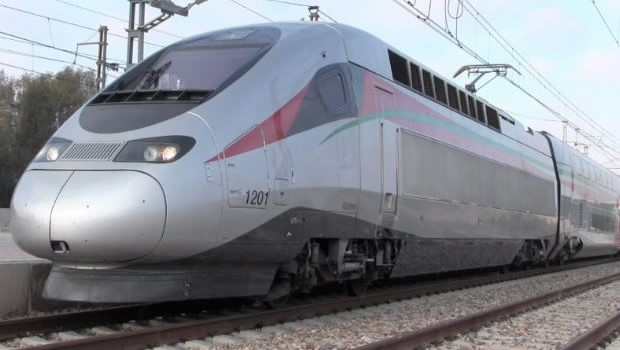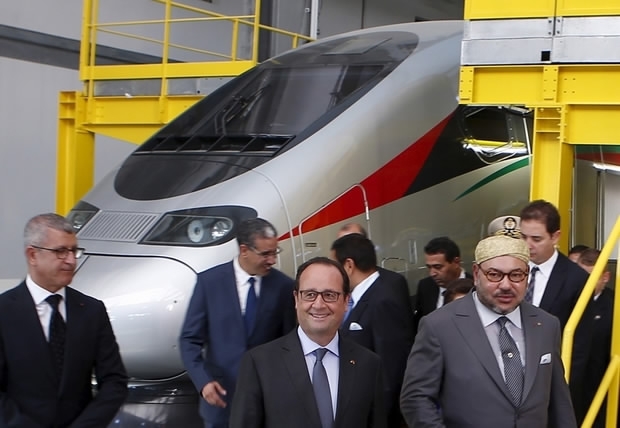
Tech & Sci
19:57, 10-Oct-2017
'Fastest train in Africa' getting tested in Morocco

Africa's first high-speed railway, which has trains that can reach 320 kilometers (200 miles) per hour, is going to be tested in Morocco this week, the country's rail office said Monday.
Along a stretch of track between the northern cities of Kenitra and Tangiers, one train reached 275 kph (170 mph) on Monday, the ONCF said.
"This is already the fastest train on the African continent," said French Foreign Minister Jean-Yves Le Drian, who was in Morocco to sign a loan deal between the ONCF and the French Development Agency.
He said the railway was "emblematic of the Franco-Moroccan bilateral relationship".
The link between Casablanca and Tangiers via the capital Rabat will slash journey times between the North African country's economic hubs by almost two thirds, to just over two hours.
Morocco's TGV, which gets its name from the French abbreviation for high-speed trains, is set to enter service in summer 2018.

File: Then-French President Francois Hollande (C) and Morocco's King Mohammed VI visit maintenance center of the Tangier-Casablanca high-speed rail, September 19, 2015. /Reuters Photo
File: Then-French President Francois Hollande (C) and Morocco's King Mohammed VI visit maintenance center of the Tangier-Casablanca high-speed rail, September 19, 2015. /Reuters Photo
The total cost of the project is around 2.4 billion US dollars (2 billion euros), 50 percent of which has been financed by France through various loans.
It is set to go roughly 15 percent over budget, according to figures released on Monday.
But ONCF head Rabii Lakhlii said the project had cost "less than 9 million euros per kilometer, compared to a European standard of 20 million euros per kilometer".
The route, made more complex by hilly terrain and strong winds, required the building of several viaducts including one some 3.5 kilometers long.
The ONCF is targeting six million travelers a year after three years of operations.
Lakhlii said tickets would cost about 30 percent more than those for the current rail link.
Moroccan leaders have heralded the project as a key step in modernizing the country's infrastructure.
But opponents have criticized it, saying the money could have been better spent in a country where many live in poverty. They also argue that it unfairly favored French companies.
Source(s): AFP

SITEMAP
Copyright © 2018 CGTN. Beijing ICP prepared NO.16065310-3
Copyright © 2018 CGTN. Beijing ICP prepared NO.16065310-3